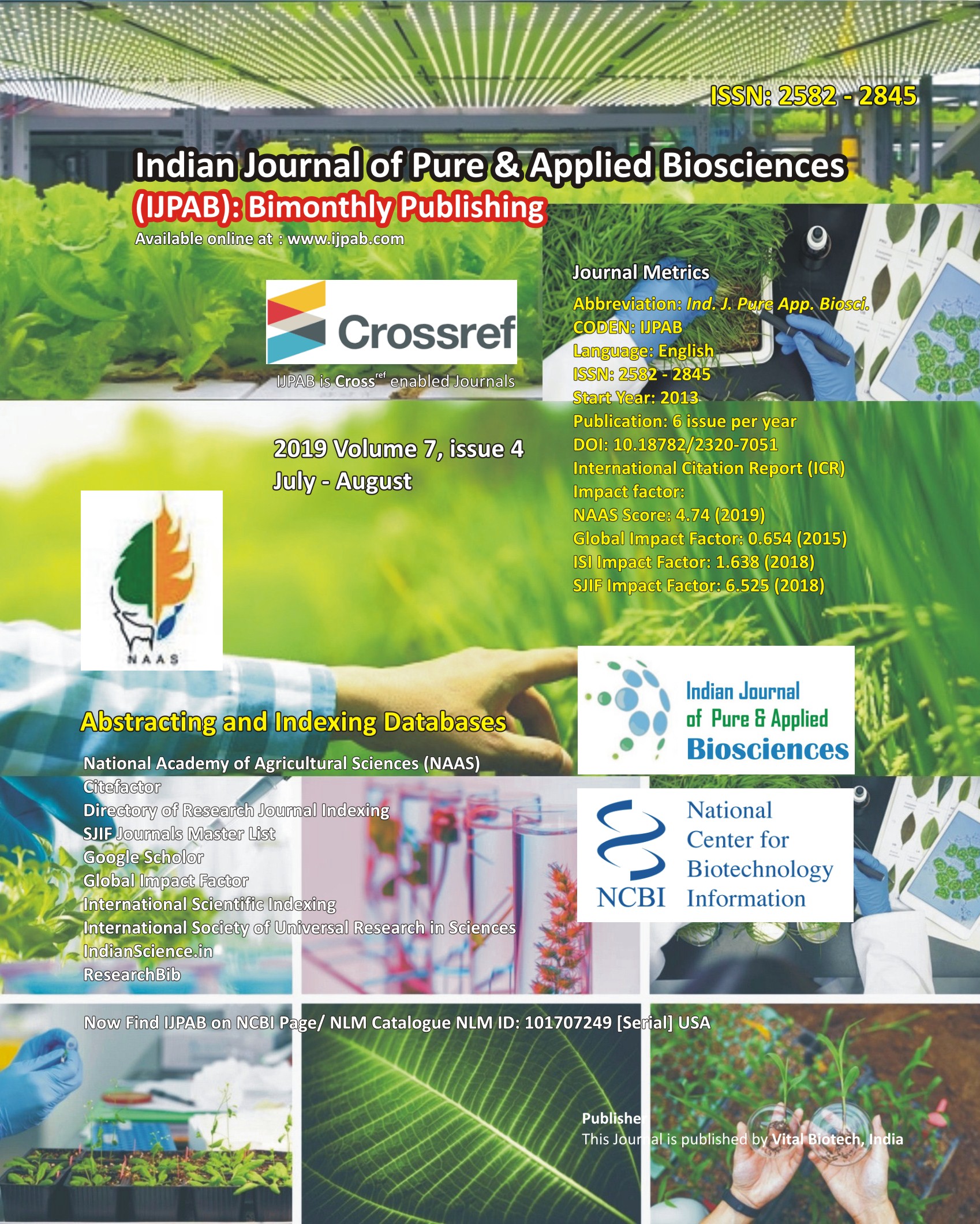
-
No. 772, Basant Vihar, Kota
Rajasthan-324009 India
-
Call Us On
+91 9784677044
-
Mail Us @
editor@ijpab.com
Indian Journal of Pure & Applied Biosciences (IJPAB)
Year : 2019, Volume : 7, Issue : 4
First page : (31) Last page : (37)
Article doi: : http://dx.doi.org/10.18782/2320-7051.7588
Molecular Identification of Hydrocarbon Degrading Bacteria Isolated from Contaminated Soil of Automobile Mechanic Workshop in Lapai, Niger State
Abubakar Hassana1*, Balogu Tochukwu Vincent2, Ogar Deborah Ushuji1, Ndatsu Yakubu1, Usman Hamza Boko1 and Mayaki Fatima Gogo1
1Department of Biochemistry, Ibrahim Badamasi Babangida University, Lapai, Nigeria
2Department of Microbiology, Ibrahim Badamasi Babangida University, Lapai, Nigeria
*Corresponding Author E-mail: ahassana@ibbu.edu.ng
Received: 24.06.2019 | Revised: 30.07.2019 | Accepted: 5.08.2019
ABSTRACT
Hydrocarbon contamination is one of the central environmental problems today as a result of petrochemical industries’ related activities. Petroleum hydrocarbons are the organic contaminants of key interest because of their complex structure, wide spread, toxicity and persistence. Accumulation of these pollutants in plants and animal tissues has been reported to cause death or mutation. Hence this study focused on molecular identification of hydrocarbon degrading bacteria isolated from hydrocarbon contaminated soil of automobile workshop in Lapai, Niger State, Nigeria. Isolation was carried out on Mineral Salt Media (MSM) containing 1% used engine oil as carbon source. The isolates hydrocarbon degradative activities were determined using turbidimetric analysis. The isolate with fastest growth was characterized based on morphology, biochemical test and subsequent molecular identification using 16S rRNA gene sequence analysis. Six bacteria strains; FS1, FS2, FS3, ES1, ES2 and ES3 that utilized 1% used engine oil as sole carbon and energy were isolated. Bacteria ES2 effectively utilized the used engine oil with the highest Optical density (OD) of 0.96 at 600 nm on the 10th day. Result from the biochemical test, blasting and phylogenetic analysis showed that bacteria ES2 belongs to Lysinibacillus specie with 89% maximum identity to this specie. These bacteria can be used to effectively bio remediate hydrocarbon polluted environment.
Keywords: Hydrocarbon, Contaminated soil, Molecular Identification, Lysinibacillus.
Full Text : PDF; Journal doi : http://dx.doi.org/10.18782
Cite this article: Hassana, A., Vincent, B.T., Ushuji, O.D., Yakubu, N., Boko, U.H., & Gogo, M.F. (2019). Molecular Identification of Hydrocarbon Degrading Bacteria Isolated from Contaminated Soil of Automobile Mechanic Workshop in Lapai, Niger State., Ind. J. Pure App. Biosci. 7(4), 31-37. doi: http://dx.doi.org/10.18782/2320-7051.7588

